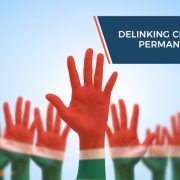Archive for month: July, 2018
Who Will Qualify for Critical Skills Work Permit? – From Winemakers to Payroll Managers
/in Archived, News /by xp-adminForeign nationals who therefore have the skills listed on the Critical Skills list may apply for a Critical Skills Work Visa to work in South Africa. The list has been highly criticised, from not including many business skills, to certain categories being “abused” by a wide interpretation.
Over the last 18 months there has been talk of refining the list further with the “Corporate General Manager” category top of the chopping block. This new list is highly anticipated with wide spread speculation on what will be included, or perhaps more importantly excluded.
Do you need a new Museum Manager, Director of Marketing or IT specialist?
The Department of Higher Education and Training (DHET) has published the “National list of occupations in high demand: 2018” listing over 370 high-demand occupations in South Africa.
The occupations listed are those that show relatively strong employment growth and/or are experiencing shortages in the labour market or which are expected to be in demand in future.
The Critical Skills list published in 2014 was developed in conjunction with the occupations in high demand and the scarce skills lists of the DHET. It is therefore expected that the 2018 list will again be consulted when revising the Critical Skills list and as such may provide a window into what we may expect from revised Critical Skills list.
For the first time the DHET list has been divided into three levels of demand, highest demand, higher demand, and high demand. Cross referencing the occupations on the above DHET list to the current Critical Skills list published in 2014, we highlighted below some of the occupations still showing high demand as well as a few new and emerging occupations not on the DHET list before and not on the current Critical Skills list.
Delinking Citizenship and Permanent Residency
/in Archived, News, Xpatweb News /by xp-adminThe new white paper is looking to address our current outdated legislation as well as policy gaps in respect to international migration policies and has implemented a more modern holistic approach
How will these proposed changes affect Citizenship by naturalisation?
Delinking citizenship from permanent residence
Our current Citizenship Amendment Act of 2010, allows an applicant to apply for South African Citizenship by naturalisation if they have been a Permanent Resident Permit holder for a period of at least 10 years. Therefore, in terms of our current legislation there is a definite natural progression between the duration of having permanent residence and the right to apply for Citizenship.
The White Paper confirms that the granting of residency and citizenship should now be delinked. It proposes that the permanent residence permit be entirely replaced with a long-term residence visa that will be later reviewable and not contribute towards citizenship. Further a points-based system will be used to determine who will qualify for a short or long-term visa. The Department of Home Affairs proposes scoring an applicant based on their qualifications, age, investment amount, work experience, type of business and the ability to transfer skills. This is not unlike the immigration systems implemented by Canada and the United Kingdom where points-based systems are being used.
Accordingly, there will be no automatic progression from residency to citizenship in law or in practice. Further, that the granting of citizenship to foreign nationals should be considered as being exceptional and requiring an executive decision of the Minister of the Department of Home Affairs.
It is proposed that an advisory panel be established to consider citizenship applications and to make recommendations to the Minister. The purpose of these policy interventions is to enable South Africa to grant citizenship status to foreigners based on strategic, security considerations and national priorities.
In light of the above, if you were considering applying for South African Citizenship, it will be worthwhile taking into consideration the pending changes and making your application as soon as possible.
FIND US
Johannesburg
17 Eaton Avenue,
Bryanston, Johannesburg,
Gauteng, 2191
South Africa
George
55 York Street
Dormehls Drift
George, 6529
South Africa
CONTACT US
Telephone:
South Africa: 011 467 0810
Postal:
PO BOX 35046
Northcliff
2115
IN THE NEWS
- Another Positive Move To Attract More Tourists To SA
- Bringing in the Bomb Squad at Home Affairs
- How Home Affairs’ Immigration Reforms Could Drive SA’s Growth in 2025
- Phindiwe Mbhele on Remote Work Visa: Splendid Cape Town is wooing more and more digital nomads
- Cape Town Shines, and So Does South Africa’s New Critical Skills Visa Overhaul



